The Grasshopper II
This is the modified version of the original legendary Tamiya model. The Grasshopper Interview was a best seller back in the 80's and many made their debut with it. Version 2 was released in 1988, quite soon after the original release (1984). Basically, the Grasshopper II is a Hornet chassis with a new bodyshell shared with the Madbull. On motor side, Grasshoppers 1 and 2 were given a Mabuchi 380 that can be easily upgraded to a 540: the buggy then becomes much faster. The suspension being very basic (simple springs), driving gets even more approximative, but still grants great pleasure for a recreational use.
The name of the model refers to its very bouncy handling on every surface. The rear dive train of the original model is fixed: as soon as a wheel goes on something, the whole drivetrain bounces. On version 2, the rear drive train oscillates like on the Hornet or the Lunch Box, but the spring suspension is not much more efficient either. In comparison, the Hornet rear drivetrain is very efficient with its hydraulic dampers being the only difference.
The Grasshopper family
The Grasshopper chassis can be found on several other models and many parts can be found on a wider ranger of models (like the gearbox/rear drive train on the Lunch Box and the Midnight Pumpkin).
58043 - The Grasshopper (1984)
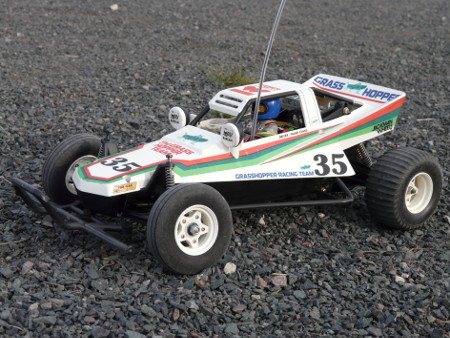
58045 - The Hornet (1984)
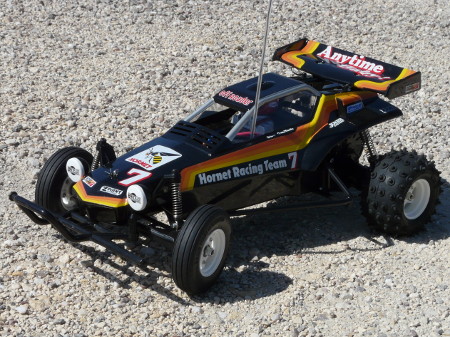
58074 - Grasshopper II (1988)
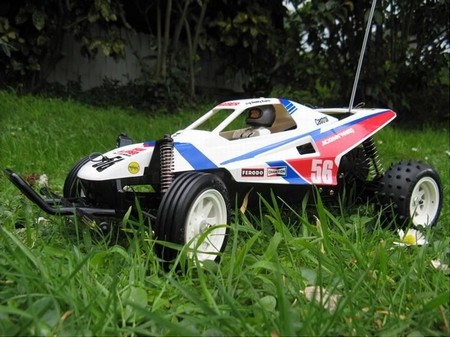
58124 - Super Hornet (1993)
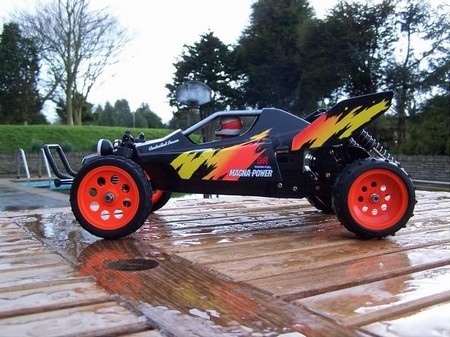
58184 - Fighter Buggy RX (1996)
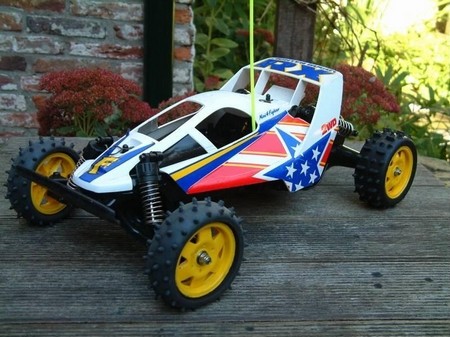
58205 - Madbull (1997)
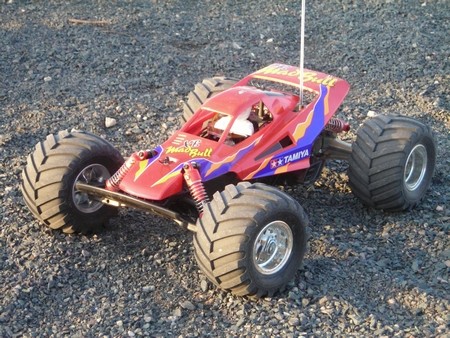
58275 - Mad Fighter (2001)
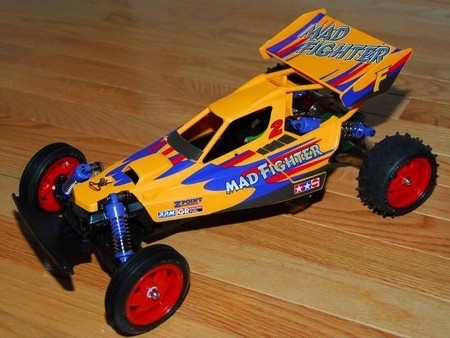
In this model family, Grasshopper I & II are the basic models, the Hornet is an evolution (especially on the suspension and the Mabuchi 540 motor that replaces the 380) and the Super Hornet features every possible option to improve its handling. The chassis remains exactly the same on all these models.
A few years later, Tamiya made changes on the chassis to release new models. The damper fit is different (oriented towards the inner chassis both at front and rear) and the rear drive train does now feature a central pivot axle.
These two main evolutions have a direct and obvious consequence over the chassis handling. Even if it remains strictly oriented to recreational use, the suspension works much better and can correctly deal with any playground surface. The typical bouncy handling of the original chassis can be almost forgotten.
Three models benefited from this improved chassis: the Fighter Buggy RX, the Madbull and the Mad Fighter presented above and on the left. This modified chassis is called a DT-01.
My Grasshopper 2 when it arrived
I got this model for peanuts. For the price, it could not be in mint condition. Obviously it was consequently used for what it was meant for: bashing. But overall, everything seems more or less OK. Some parts are disassembled and probably incomplete. Some photos at the box opening:
The box content
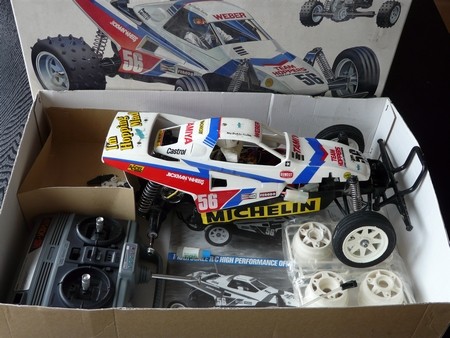
Some parts including a new full set of Wild Willy 1 rims
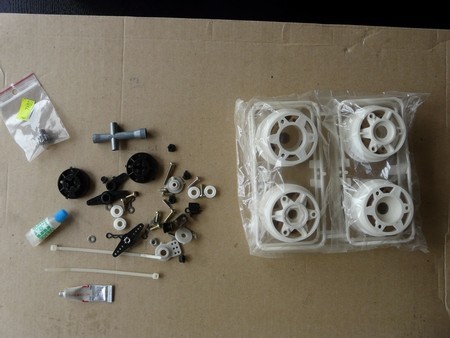
Chassis overview
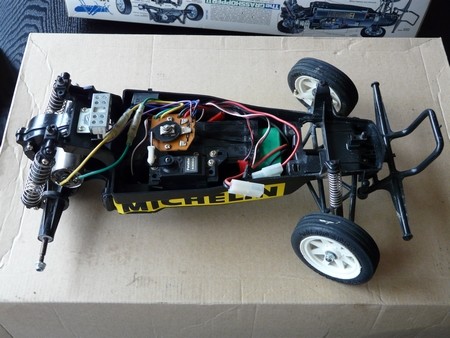
Zoom on the chassis
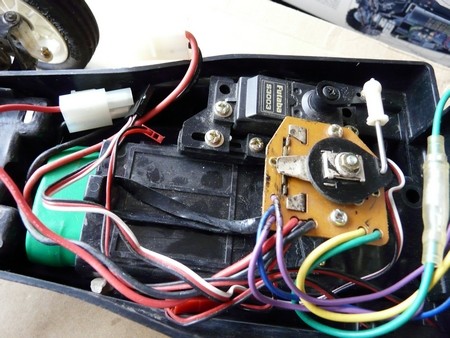
A square tire (just good at running in stairs)
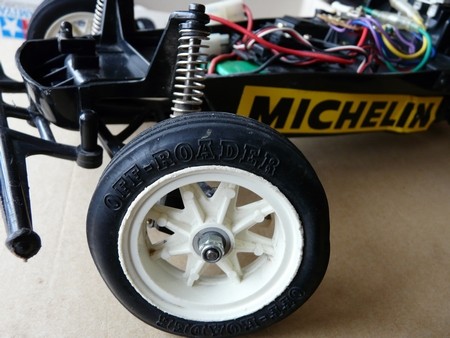
The rear drive train (needs grease because it squeaks)
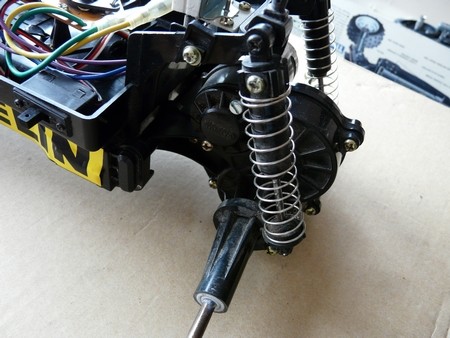
Bodyshell overview
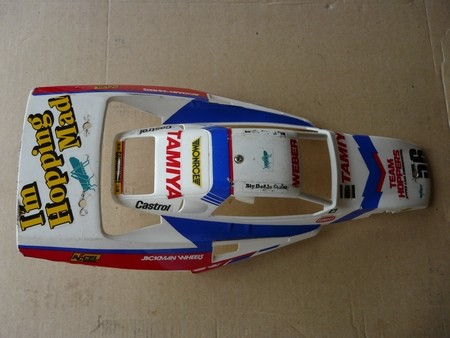
It was used, but noting is broken
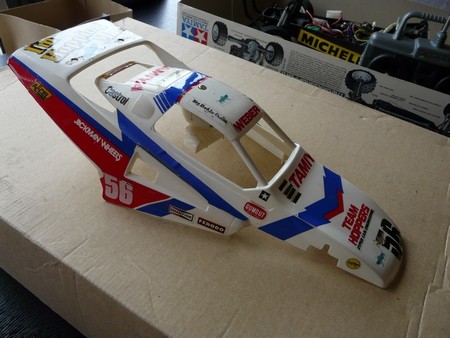
At first sight, nothing seems broken or in need of serious repair. The few spare parts can't be enough to rebuild it completely, the transmitter may still work (to be checked), a battery pack is there but also needs to be checked, front tires need replacement, the 380 motor is there with it 10 tooth pinion but I will replace it with a 540 motor (18 tooth pinion). The mechanical speed controller will directly go to the trash as the resistor wires are burnt and melted.
Anyway, a full disassembly is needed to check up everything. But this restoration should be quite easy.




